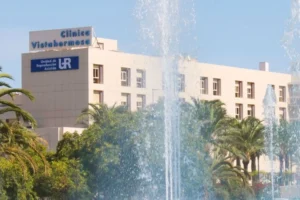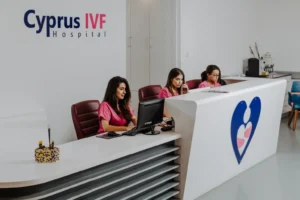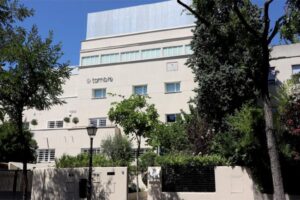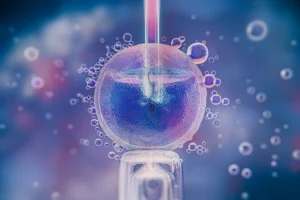What donor races are available in Spain?
The search for egg donors according to their ethnicity is always one of the first steps that any fertility clinic has to face, along with medical requirements, compatible blood type, and genetic compatibility.
It is important to understand the availability of races/ethnicities from the point of view of relative classifications. Each country, and each clinic within a country, classifies donors differently according to their ethnicity/race. We could talk about a very basic classification, for example: Caucasian, Asian and African donors. Another more extensive classification would be Nordic, Mediterranean, African, Indian, Asian, Mulatto. Thus, we could make a wide range of classifications that depend on different recognizable physical features of the person such as skin colour, eye colour or facial structure.
In Spain, all ethnic groups are available, although Caucasian donors are the most prominent because Caucasian is the main ethnic group in Spain. However, saying “Caucasian” is a very broad classification, since a Caucasian donor can have a Mediterranean profile or a more Nordic profile. It is at this point where many Spanish clinics have put themselves at the forefront of technology with the Fenomatch tool, which allows them to fine-tune the ethnic profile of each donor, with objective criteria based on Artificial Intelligence algorithms. It has been a breakthrough that has allowed them to make a selection much more in line with the patient’s profile. In Spain, there is already an expression to “Fenomatch a patient” when looking for a donor.
Unfortunately, Asian donor profiles are not widely available, neither in Spain nor in Europe. Sociocultural characteristics and the percentage of the Asian population make it much more difficult to find Asian-Japanese or Asian-Chinese donors in Europe in general.
Are there certain Spanish regions where some of the egg donor races are more available than in other regions?
In Spain, the characteristics of the donors follow a pattern that is very similar to European, mostly Caucasian, although with a different predominance in terms of eye colour, skin tone or hair colour than a Nordic-type donor may have.
There are regions such as Madrid, Barcelona, Valencia or Alicante that have seen a great increase in the demand of international assisted reproduction treatments with egg donation in which there is a significant challenge in finding a variety of Asian, Black or Native American donors. This situation, together with the recruitment of Caucasian donors with different traits and blood types, has forced clinics to create specific recruitment and information programs for potential donors, always without focusing on financial compensation and calling for solidarity between women.
Within this specificity, the recommendation is to look for clinics that have a good donor recruitment program, a good gamete database or bank, and advanced selection tools for the classification and organization of donors. In this sense, clinics with Fenomatch can securely share this information to not only have better technology but to have access to more donors, and therefore be able to make a better selection.
Where do the egg donors come from?
We have to take into account that Spain is a country with a long tradition of donation, with blood and organ donation rates well above the average for European countries. This trend holds for egg donation, despite there being little financial compensation: approximately 60% of women who donate eggs state that their main motivation is to help other women.
More than 70% of Spanish donors have studied or are studying at University, and they are between 22 and 27 years old.
The most common profile of the Spanish egg donor is a university-educated woman between 22 and 25 years old. However, the profile can vary considerably between different cities and centers that have different strategies in terms of their donor recruitment programs.
In Spain, due to the anonymity of the donors and because it is the patient’s medical team that has to choose the donor while maintaining their anonymity, it is not possible for a friend or sister to be the specific donor for the patient.
With regards to the origin of the donors, 84% of the donors are Spanish by nationality and reside in Spain.
How are donors in Spain qualified according to the law? What is the qualification process and what tests are involved?
Law 14/2006, of May 26th, on assisted human reproduction techniques establishes that the donation must be made anonymously, be voluntary, be informed and be unpaid. The donation of gametes in Spain implies that the confidentiality of all data related to the health of the donor provided to authorized personnel must be guaranteed, as must be the results and traceability of their donations.
The donor, despite being unpaid, receives compensation for physical discomfort, travel, and labour expenses derived from the donation process, provided that the amount does not imply an economic incentive. The average compensation to donors is €1,100.
Anonymity in Spain implies that the recipient and the donor cannot know each other either in the present or in the future. The donor selection in Spain, by law, is run exclusively by the recipient patient’s medical team; the recipient patient is unable to see photographs or discover identifying data of the donor. Spanish law establishes that the medical team has the obligation to find the donor with the closest phenotype to the patient within the available donors. Of course, children born by egg donation can request information from the donor as long as it is not likely to reveal the identity of the donor. Furthermore, there are exceptions contemplated in the regulations by which it would be possible to disclose information about the donor in the event that this information is relevant to the health of the resulting born child(ren).
During the egg donation process, clear and exhaustive checks are carried out, including an evaluation of the general health condition of the donor, a gynecological examination and a psychological evaluation that must guarantee the emotional health of the donor. Once the suitability of the donor is approved, serology tests (hepatitis, syphilis, HIV, rubella…), karyotype to rule out chromosomal abnormalities, and a carrier test are performed. The carrier test is a process that is performed by all fertility clinics in Spain with the aim of matching between patient and donor to reduce the probability of contracting genetically inherited diseases. Currently, the carrier tests carried out cover the 7 genes recommended by the Spanish medical associations, which are the most basic aimed at discarding donors, to the analysis of the complete exome.
Spanish law obligates clinics to perform a lot of low-level genetics work on the donors to make sure they aren’t carriers of any diseases that could be passed on to the child or that could be a danger to a patient who experiences immunological issues. The process is heavily regulated to ensure the safety of all parties involved.
Dr Natalia Szlarb, gynaecologist & fertility specialist, UR Vistahermosa explains
Furthermore, egg donors must be between 18 and 35 years old, although the most common profile is that of a woman between 22 and 27 years old, and the maximum number of children born from the same egg donor is 6.
Is it possible to buy or get oocytes from an external egg bank outside of the EU and transport to Spain? Are there any legal aspects to be considered?
Nowadays, there is the possibility of freezing eggs, with success rates of the treatment very close to those of fresh cycles. This opens up the range of opportunities to be able to carry out donor treatments to create an egg bank that allows them to be transported and therefore improves efficiency in the search for the ideal donor.
These eggs must meet legal and quality requirements in each country, and if these requirements are compatible, we can talk about obtaining or importing eggs.
That being said, it must be considered that the transport of gametes is a very delicate activity, the different legislations of the countries are involved in the process to guarantee the safety of transport and strict compliance with the law, including the purpose to which that egg it is going to be dedicated or the origin in terms of the rights of the donor.
An example of this is the export of gametes from Spain to other countries. Any clinic must guarantee that it cannot be used for a surrogacy process, a process currently prohibited in Spain. The same happens in reverse, depending on the country from which it is imported, the competent authorities of each country must be guaranteed strict compliance with both the documentation for transport and the justification of the purpose of the gametes. Although being within the EU can make the process relatively easier, it is not easy at all and each case must be studied country by country.
Additionally, the requirements of each country must be taken into account within the reproduction process itself. For example, in Spain it is common to carry out carrier genetic testing on all donors, and the Spanish reproductive societies recommend a number of genes that should be reviewed. If such tests are not performed in another country, it will hardly make sense to import gametes from that country. This idea is repeated with a multitude of tests, assurance of quality of the gametes, etc…
Spanish law establishes that eggs can be broughtfrom other countries as long as the following requirements are met:
- There is an authorization for the transfer by the competent health authorities in both countries.
- The receiving center of the samples must be a center authorized by the Spanish health authorities.
- Those responsible for the gametes have to authorize the transfer of personal information.
- The center of origin of the biological samples must adopt the necessary measures so that the personal information is protected during the transfer if it is carried out by third parties.
- A complete traceability of the process must be fulfilled by both centers, and the receiving center must identify itself and issue an acknowledgment of receipt of the sample.
- The transport must be carried out by a company specialized and certified in the transport of biological material.
Answering the question “can you bring eggs from other countries outside the EU?”: Yes, but it is a very complicated process and there are many laws to consider depending on the country ‘we are considering.’






